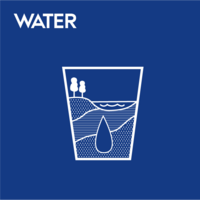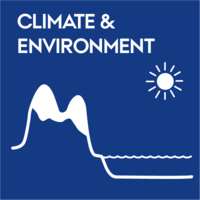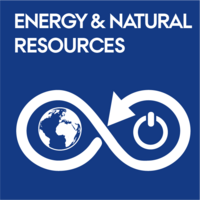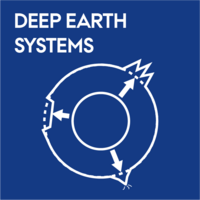
Specialize in water on the earth's surface and subsoil in relation to societal needs.
This specialization aims to give you a deeper understanding of hydrogeology, groundwater modeling, ground water chemistry and the glacial sediments as well as how these can be used to understand and tackle challenges related to water, polution and raw materials. The course topics in this specialization are based on and build on the courses in hydrochemistry and glacial geology. The course topics have a strong focus on quantitative methods and numerical modeling. It is possble to choose up to 20 ECTS from other specializations to individualize the master's program.
You will gain a deeper understanding of the water cycle, the interaction between groundwater and surface water, groundwater modeling and groundwater chemistry as well as insight into glacial geology, sedimentology and the geophysical methods used in actual mapping. This will give you broad competencies to help solve our society's current challenges related to both too much and too little water and all environmental problems in connection with the flow and quality of water in and outside of Denmark.
The teaching includes lectures, excercises and a field trip, where some of the methods are used in practice.

Understand the processes that drives the climate changes and understand the impact on the Earth's surface.
This specialization provides an understanding of the processes that drives past and present climate change and the evolution of landscapes and ice-sheets from a geological perspective. The course topics in this specialization build upon and expand the courses in glacial geology, sedimentology, geochemistry, micropaleontology, geomorphology numerical methods, as well as geophysics. Equally, it allows combining 15 ECTS points from other specializations.
The aim of the Ice and Climate specialization is to obtain an integrated and comprehensive knowledge of geological processes operating at many scales. In particular, the specialization elucidates how geoscience is used to obtain knowledge on the dynamics of the climate system, including glacial processes, landscape evolution, ocean and atmospheric circulation, solar and volcanic forcing as well as the role of large-scale Earth processes on climate and cryosphere.
The course work includes lectures, practicals/exercises and seminars. An optional field trip (marine cruise) is available through the course “Marine Geoscience”.

Help solving the ever increasing demands for sustainable and fossil energy by combining geophysical and geological methods for subsurface analysis.
The Course topics in this specialization deals with descriptive and numerical analysis of the deposition of sediments in sedimentary basins from the pre Permian to recent including numerical modelling, sequence stratigraphy, sedimentology and structural geology. It is possible to include up to 30 ECTS from other specialisations in order to individualize the masters program.
The objective of the specialization is to give the student a deep understanding of the mechanisms of basin formation and infill in order to be able to predict the geotechnical properties (used for placing e.q. offshore windfarms), analyse the geothermal energy resources and optimize the production sites, and understanding the generation and production of fossil fuel. The programs are designed to include both students with a geological and a geophysical background and includes lectures, practicals, seminars and a field course including a cruise for seismic data acquisition. The MSc thesis project is preferable conducted in collaboration with energy industry partners.

Get a deeper understanding of geological processes and how they shape our planet and form the natural resources that our society uses.
The course topics in this specialization build upon and expand the courses in mineralogy, petrology, geochemistry, structural geology, as well as global geophysics. Equally, it allows combining 10ECTS points from other specializations.
The aim of the Deep Earth specialization is to obtain an integrated and comprehensive knowledge of geological processes at large and small scales to understand the dynamics of the Earth, including mantle dynamics, subduction and spreading environments, the formation of mountain belts, and metallic resources.
The course work includes lectures, practicals, seminars, and a field trip related to the course structural geology.